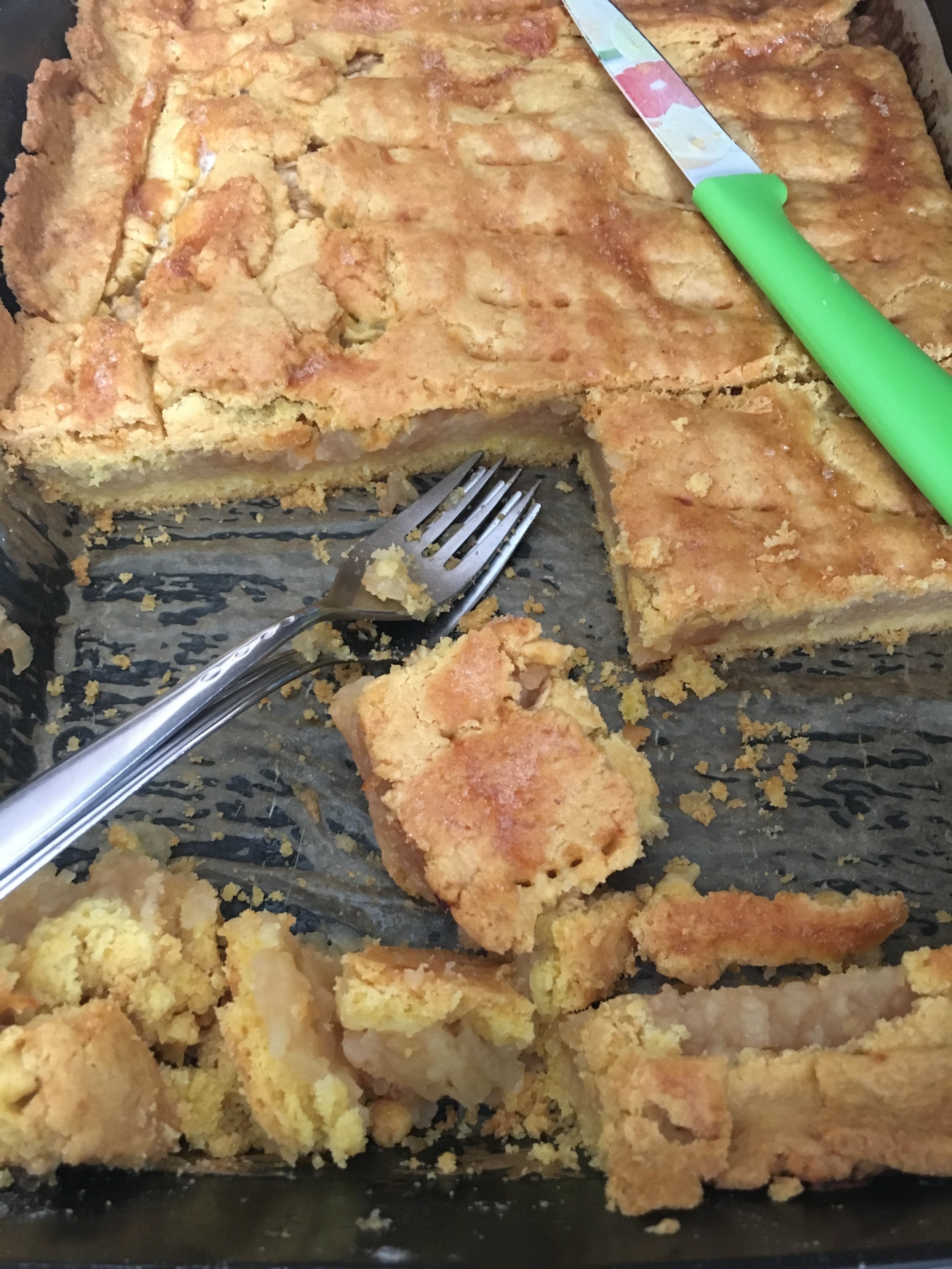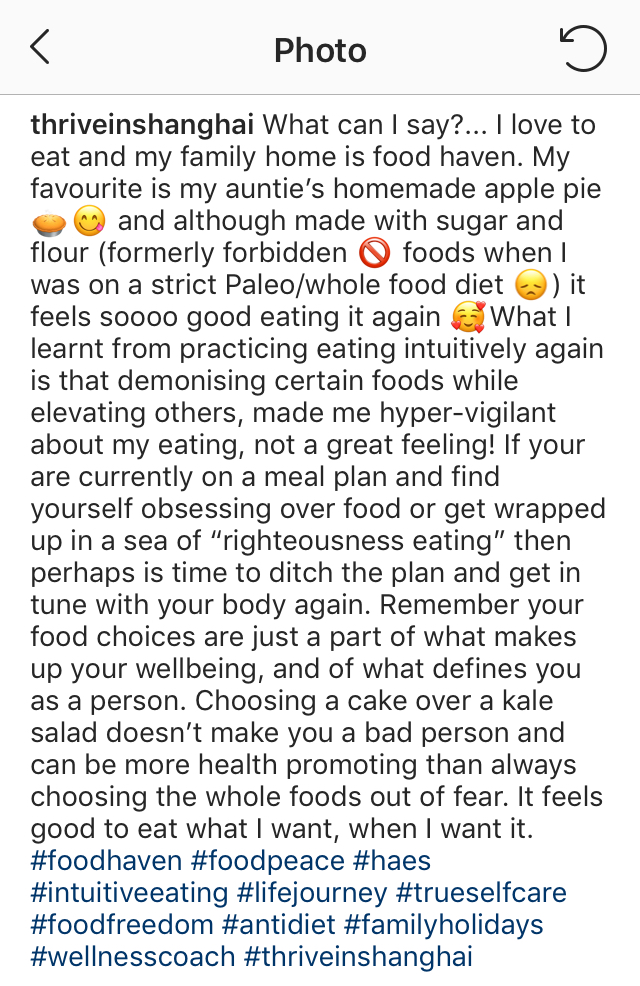The summer season is here, and, with it, an increased flow of information on nutrition, latest diets, cleanses, thin beauty ideals, and other quick fixes that use weight loss as a measure of health and happiness.
Let me set the record straight. Following a rigid diet, contrary to popular belief, does not promote a sustainable weight loss or weight maintenance or body acceptance and instead has been linked with weight gain, emotional distress, development of eating disorders, and more! Hence the obsession with being thin and constant restrictions as a path to better health, longevity, and happiness is simply flawed. Yep, you read it right!
“So what’s the alternative?”, you might be wondering.
Well, during some recent research on women & food, I came across the work of two dieticians - Evelyn Tribole and Elyse Resch, who introduced me to the concept of Intuitive Eating (IE). The IE philosophy rejects the quick fix promises and re-teaches us to regulate our behaviour around food by listening to our body’s cues. IE is based on ten principles, namely:
reject the diet mentality;
honour your hunger;
make peace with food;
challenge the food police;
feel your fullness;
discover the satisfaction factor;
cope with your emotions without using food;
respect your body;
exercise - feel the difference;
honour your health - gentle nutrition
From the ten principles of EI, rejecting the dieting mentality and giving oneself unconditional permission to eat is often the most complex one to accept. Many fear that not restricting certain foods, may result in a loss of control and overindulgence on unhealthy food, however, scientific literature shows the opposite to be true. In fact, an IE pattern has been found to improve health markers and the overall quality of food consumed (Van Dyke & Drinkwater, 2014). Many studies have shown that individuals who rely on external restrictions are more likely to eat when not hungry or eat to soothe negative emotions (Birch, Fisher, & Davison, 2003; Van Diest & Tylka, 2010; Scaglioni, Salvioni, & Galimberti, 2008). These results are consistent with research pointing out that humans are born with the innate aptitude to use hunger and satiety cues to adjust food intake. A toddler, for instance, is a naturally intuitive eater, namely, he/she eats when hungry and stops when full (Fomon, 1993). Similarly, other studies (e.g. (Birch & Fisher, 1998) found that young children are able to self-regulate food consumption according to their physiological needs providing their natural cues have not been overruled by the child’s parents. Unfortunately, once individuals start to rely too much on external cues (i.e. scheduled meal times, portion sizes, etc.) or non-physical cues (i.e. eating to satisfy emotional distress) to regulate caloric intake, the innate ability to listen and act according to the body’s signals fades away.
Why is all of this important? Because the diet mentality leads you to the path of the “all or nothing” kind of thinking. Diets can turn you into the perfectionist who follows all the rules rigidly and then goes into full—on “screw it” mode when you stop seeing the desirable outcome (ie weight loss)
I hope reading this article will empower you to take back control over your life and start listening to your body instead of to external sources. Nutritional advice, tips from friends, experimenting - that’s all great and it can give you a structure, but ultimately you will need to start listening to your own body’s cues and respect those.
I know what you’re thinking… why is she writing this? Doesn’t she advocate for an ancestral type of diet? Yes, you’re right. You could say my way of eating is guided by the principles of Primal lifestyle (or diet, whatever the heck you want to call it) but the truth is that locally sourced whole foods make me feel my best so this way of eating is freeing and comes naturally to me. So, yes, although, whenever I can I avoid gluten, polyunsaturated oils, refined sugar, GMO, and conventionally raised animals - these days, if I want to have a dessert made of all of the “non-food” ingredients, I will have it! I won’t think twice about it and will definitely not feel guilty about it afterward. Why? Because the all-or-nothing mindset of eating “perfectly”, or having a “cheat date” once in a while doesn’t work. The truth is that not every single food choice has to be of the highest nutritional benefit and “healthier” foods should never be chosen out of obligation but the internal cues to eat food the body desires.
If you’re one of my friends, you might think, “hold on don’t you usually say to NO to bread, pizza, pasta, cookies, cakes and so on?”. Yes, you’re right - I do. Doesn’t this mean that when I say NO to that freaking cake or that glass of wine at a party I restrict myself? NO. It simply means that eating a cake doesn’t make me feel good afterwards and I can simply not have it or take a bite and decide that it’s not worth eating. When it comes to pizza, chips or other popular types of foods of that ilk, I simply don’t like them, these foods were never my favourite. And if the conventional dieting Food Police have a problem with that, then so be it (their problem, not mine ;). To end this rant, I suppose you could pigeon-hole me into both the Primal and Intuitive Eater type of category. However, please be careful in labelling yourself and others as one type of eater, wether it is Paleo, Primal, Vegan, Vegetarian, Carnivore, or Keto because as soon as you put a label on a way that you eat it gets dangerous and there is no room for error.
Now back to you…
Do you feel guilty when you eat certain food? If yes, I have an exercise for you to do.
I want you to write your food Sh*t list, or foods that you consider as bad or feel guilty about after eating. On the top of your list should be the worst offenders that cause you the most stress.
Now look at your list and circle the type of food you really enjoy eating but keep restricting.
Now pick one type of food from your sh*t list, that you circled and buy more of it. Keep some everywhere. Then, whenever you get a craving for that food, go ahead and give yourself permission to eat it. Immediately re-stock when you finish. After a few days/weeks you might realise that since you can eat sh*t list food whenever you want, the craving for it will disappear. The “forbidden fruit” you obsess so much about will no longer have power over you. The truth is that most people know deep down what foods make them feel their best and which foods makes them feel like sh*t. Remember though to be mindful while eating the “forbidden food” and have a connection with your body, see how your body responded to that food. Did it provide you with the needed satisfaction? Energy? Did it feel good in your body? Or did it make you feel shitty? Did you have abdominal distention or bloating? Did you experience refractory anxiety, insomnia or joint pain? Make these connections and see whether by having this food you’re honouring your body or harming your body.
Let me know how you get on with this activity in the comment section below.
P.S. If you want to re-learn how to be an intuitive eater and get more guidance on how to become metabolically flexible, aka being able to use both fats and sugar for energy - then my 3 months coaching package is for you.
P.S. I’m taking a break from writing so the next article won’t come out until end of September.
P.S. Thank you ladies for joining me for the very special workshop focused on the foundation of a balanced diet and WHY balancing blood sugar levels is the key to stable energy, optimal metabolism, and no sugar cravings. Stay tuned for more workshops as the summer unfolds!
Have a Beautiful Summer!
Izabela Misiuk, MSc, PHC
The Wellness Coach
thriveinshanghai.com
Professional & Personal Wellness Coaching




